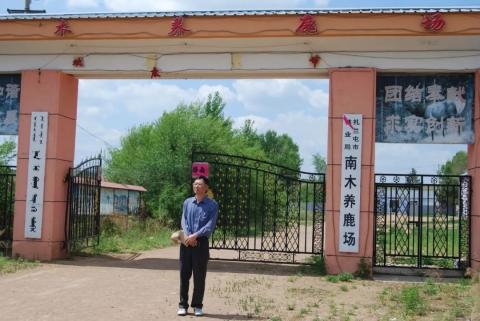
Time: June 5, 2013
Location: Zhalantun, Inner Mongolia
Jingxiang's Travel Notes Chapter 16 丨 "Northeast Journey" Chapter 17
We are blessed with wild vegetables, but deer farmers are struggling.
Teacher Bai came right after class. She came by taxi and introduced the driver: "This driver's surname is Li, and he is very familiar with Nanmu."
Don’t think that Master Li is just driving and serving as a guide. This time, Nanmu is not here for the tourist attractions. If you don’t know the locals, today’s trip can only be cancelled-because today and in Dunhua, we are going to the Korean village leader Park’s house. The same thing is to go to the homes of Oroqen villagers to see the collection and production process of Northeastern specialties. Obviously, Teacher Bai had made enough preparations and chose Master Li, who had many connections in Nanmu, to drive.
Phoebe is a large evergreen tree of the Lauraceae family, but what I am talking about now is a place name. It is neither a village nor a town, but the seat of the township government of the Oroqen Nationality Township under the jurisdiction of Zhalantun City. Strictly speaking, we are going to Oroqen Nationality Township. Since it is a minority township, its place name may also be transliterated. Because, I found that there are two ways of writing the Chinese characters of this place name: "nanmu" and "nanmu" are used at the same time.
The road sign said "Nanmu". Of course, Master Li didn't need to look at the road sign. He could find the intersection with his eyes closed, but I, a tourist, curiously observed everything along the way, including the street signs.
We first came to the deer farm set up by the Zhalantun Forestry Bureau here. The gate of the deer farm is half open, and a large sign at the door reads "Zhalantun City Forestry Bureau Nanmu Deer Farm". At first, I thought that one of the road administration department and the forestry bureau must have made a typo. Then I thought about it and realized it might be a transliteration. Aren’t “New Zealand” and “New Zealand” the same thing?
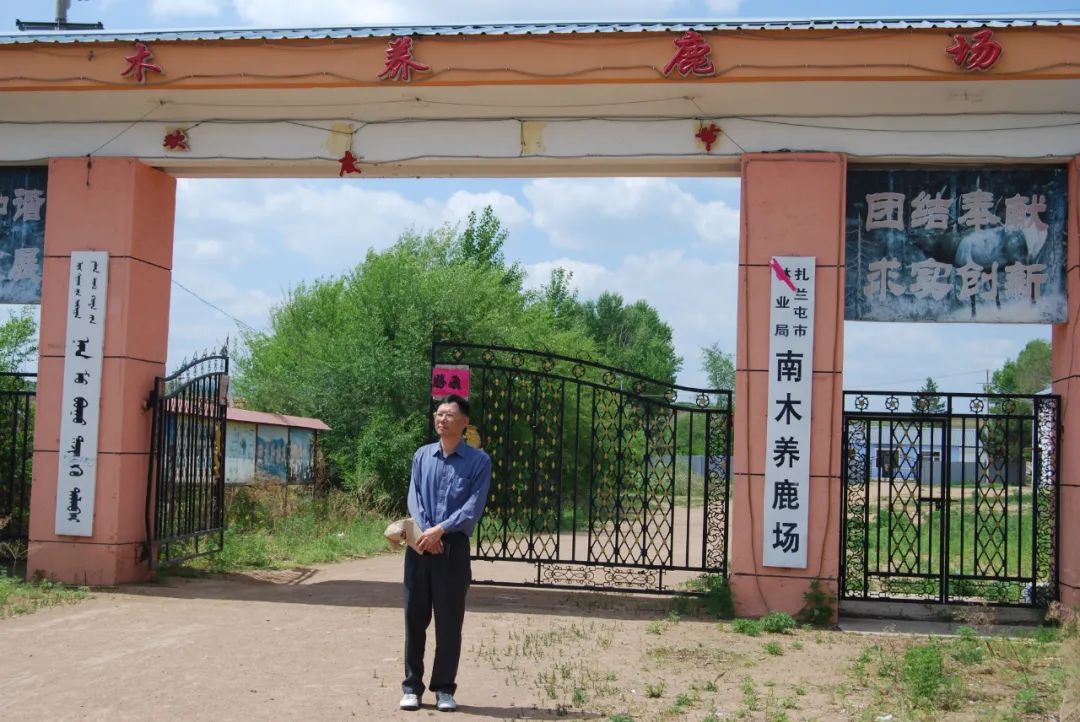
Master Li was very familiar with this place. He took us to the side of the deer farm with a few twists and turns. A man about fifty years old was already waiting here.
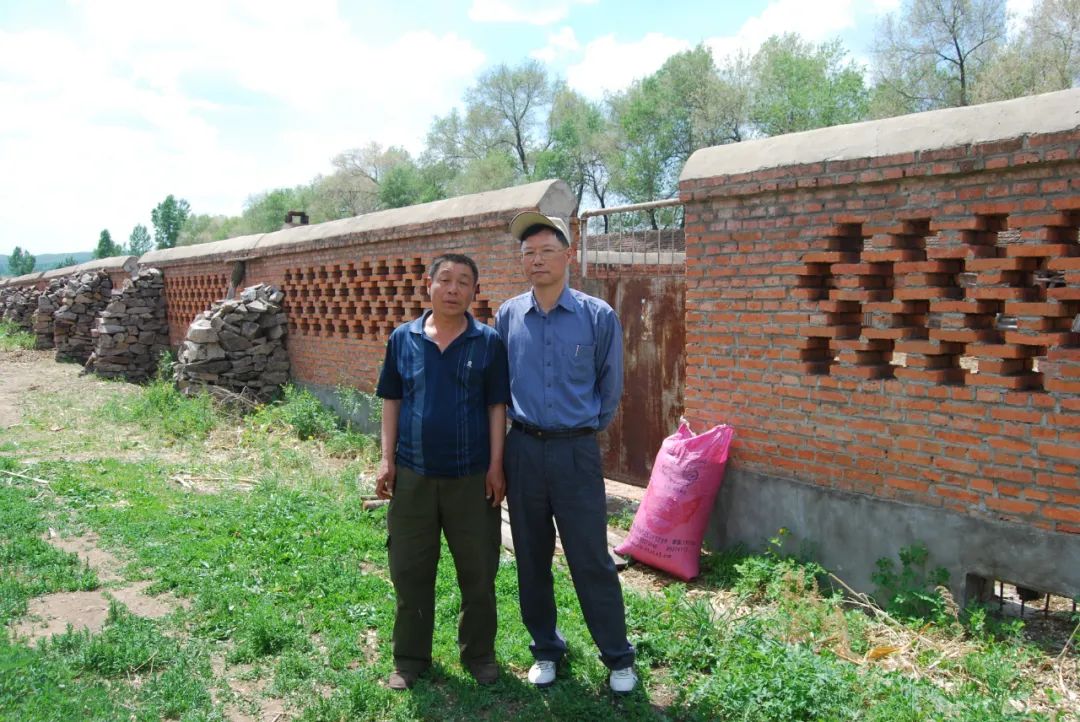
Master Li introduced me: "This is Mr. Li. He keeps deer at home." Haha, it's strange. Although the surnames Wang and Li in China are both common surnames, they don't mean that "one king is a king, and one Li is a king." "All Li", right?
Mr. Li was very enthusiastic and answered the questions I wanted to know very seriously. It turned out that he was also an employee of the Forestry Bureau. Later, the deer farm was contracted out, and he and several employees each contracted several deer pens.
While we were talking we had already entered the deer farm.
The deer farm is quiet and the uniform deer pens record the history of public ownership under unified construction and unified management by the Forestry Bureau at that time.
Today, the deer farm is empty of all ten rooms. In the deer pen of about 200 square meters, there was only a food trough lying in the open space. After a closer look, I found that there were one or two deer in the deer house, but in most of the deer pens, there were only food troughs and no deer.
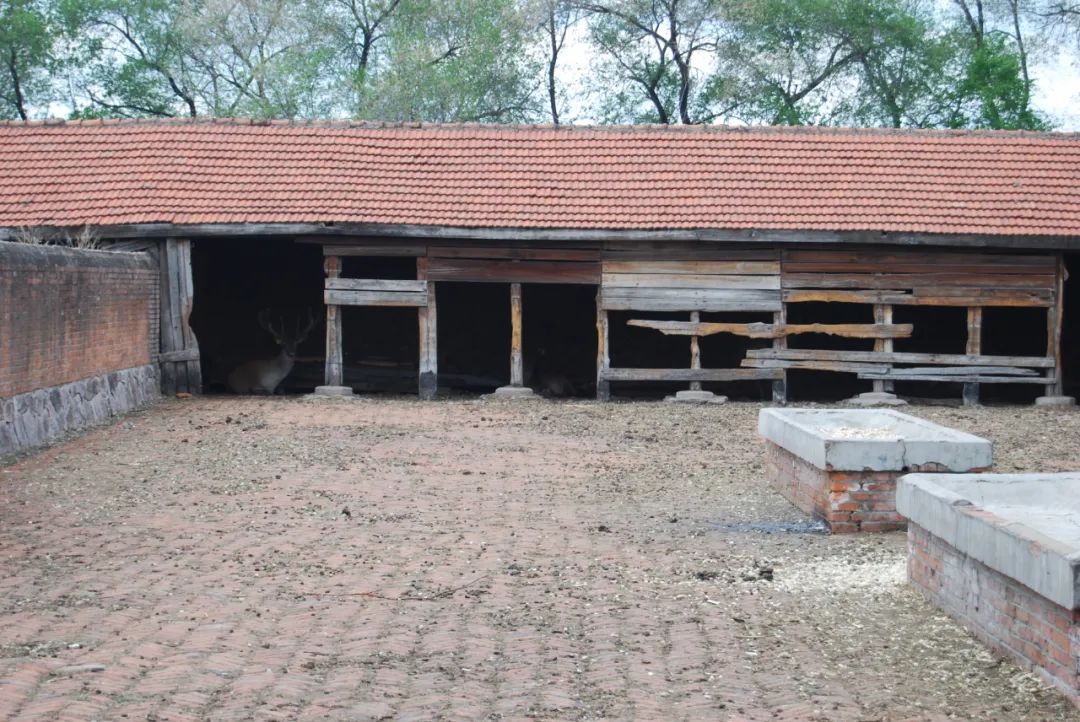
After the reform, many state-owned enterprises can be contracted or purchased by buyers to use the original resources to start over, but the deer farm resources here have not been utilized.
"Why is the venue being left unused?" I want to know why.
Mr. Li said: "You can't make money by raising deer, so not many people are keen on raising deer. Young people have gone out to work, and the original contractors have also changed careers one after another. We old people have some experience in raising deer and can't let go of this field. Just stay.”
This situation reminds me of fruit farmers. In our area, the subtropical climate has given birth to many southern fruits, among which lychees are the best. This kind of fruit tree, which can only grow between 18 degrees and 28 degrees north latitude, is very precious to the world. However, in good years, not only are lychees cheap, but also fruit farmers need to pay more for harvesting and transportation costs; in poor harvest years, prices rise, but the output is not much. No matter how hard it is, the income from growing fruits is basically the same. That's the number, but it's the circulation field that makes money.
Why doesn’t Nanmu Deer Farm make money? Aren’t deer products on the market very popular? I think it may be due to poor circulation channels.
There should be deer raised by Lao Li here, although he didn’t deliberately take me to visit the deer pen he contracted. Since many contractors have left, these deer should belong to the contractor they insisted on staying. Although not all of them belong to him, at least he has a share in them.
"Can you see a decent-sized deer farm?" I was not satisfied with the few deer I had just seen.
"The family named Lan that raises more people now." Before we finished speaking, Mr. Li had already led us to Mr. Lan's home. It turned out that he had been leading us this way.
Before I even entered, I saw deer tendons hanging outside to dry. Mr. Lan's house also has many houses for raising deer (let's call them deer pens, I really don't know what they call them), but each pen is only a few dozen square meters, which is smaller than the deer pens in the public deer farm. Much smaller. But every deer pen is not idle, and even if deer are not raised, it is used to raise rabbits and pigs. Needless to say, it is obvious that this is a hard-working family.
There is a very delicate yellow sign hanging on the big antlers of a red deer with the word "gold" written on it. Maybe this is the name Mr. Lan gave to the deer.
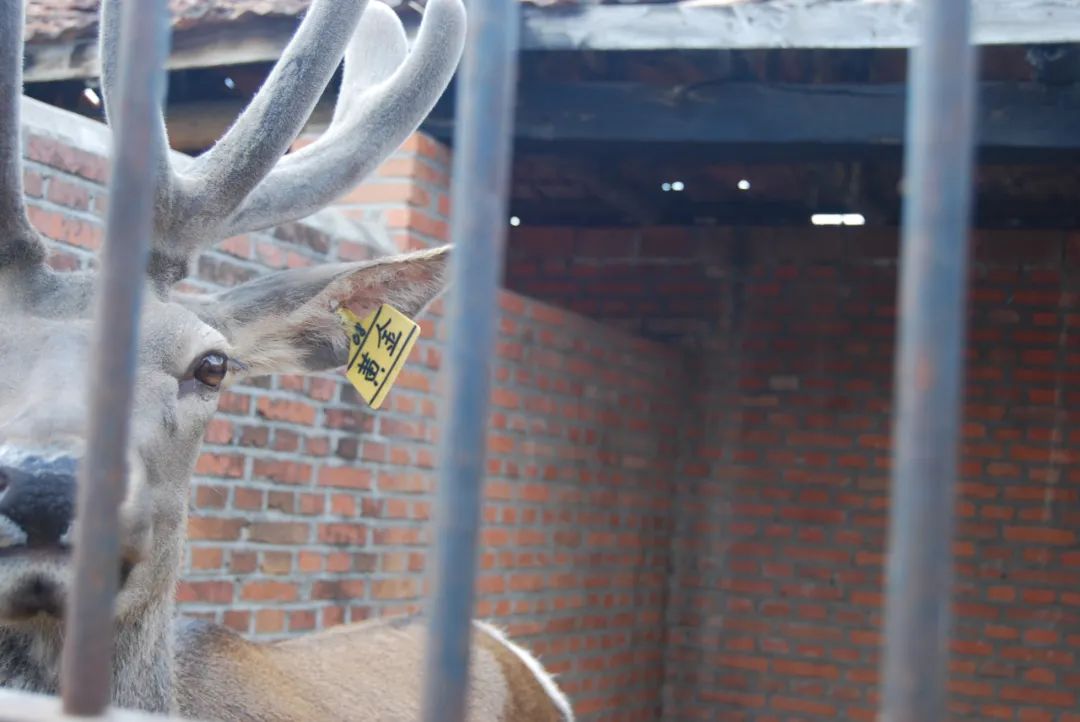
"When can I saw deer antlers?" I didn't understand deer, so I asked Mr. Lan for advice. It was really the right time to ask, Mr. Lan said: "It will be sawn in another twenty days."
What does a deer with its antlers look like? I don’t know, but later I saw a roe deer with its horns cut off in a roe deer farm.
In addition to raising deer, Mr. Lan's family also grows some vegetables. Half of the green onions are in bloom, which are reserved for seeds.
"Do you have a wild vegetable called willow bud here?" I suddenly asked Mr. Lan.
This hard-working and honest man from Northeast China immediately squatted down and picked vegetables from the field without saying a word. Teacher Bai and Master Li both shouted excitedly: "Liu Hao Ya, it's Liu Hao Ya!"
The nutritional value of Artemisia buds is very high, and it has the effect of breaking blood and removing blood stasis, lowering qi and unblocking meridians. Although this wild vegetable has now entered farmyards, its wildness has not diminished at all: the smell of freshly picked leaves is similar to that of mugwort leaves, and when cooked in a pot, you can smell a pungent mint smell. Pour away the dark brown water that is full of mint flavor, put the drained willow sprouts back into the pot, add water, big bones or ribs and cook them, you will smell the smell of Chinese medicine wormwood.
Mr. Lan didn't say anything, he squatted down, pulled out a lot of fresh willow sprouts, and stuffed them into us.
The midday sun shone on Mr. Lan's honest and dark face. He didn't have many words, he just smiled, as if to say: "I grew it at home. If you don't accept it, you are looking down on me."

A handful of vegetables is not worth a lot of money, but what is valuable is the kind of compatriotship that a villager has for a stranger in the city, which is thicker than water. The hospitable Mr. Lan not only did not think about taking advantage of Teacher Bai and Master Li's surprise and sell it at a high price, he did not even think about charging some labor fees.
Where should we go when we say goodbye to Mr. Lan?
" Come to my house for a cup of tea." Mr. Li's warm invitation was exactly what I wanted.

Mr. Li's yard is very clean. The paint on the wall has been exposed to the sun for a long time. The color of the side facing the sun is lighter than the side facing the sun. However, there is no stain on the wall, as if it had just been painted.
After entering the house, my eyes were even brighter - the whole house was spotlessly clean. I couldn't believe that this was a rural family. It’s not that its decoration is luxurious, but it’s so clean that you can pick up and eat food even if it falls on the floor.

As soon as we sat down, Mrs. Li came in carrying a basket. She had just returned from picking wild vegetables in the mountains.
She put the basket in front of us, and a basket of fresh wild vegetables was displayed in front of us.
"What kind of vegetables are these?" Although I have been in the market, I know nothing about wild vegetables.
There were many kinds of wild vegetables in the basket. Mrs. Li first took out the top one and told us: "This is called mountain spinach." The next thing she took out was bracken. This kind of bracken has a good taste, can clear away heat and detoxify, and is good for water and intestines. effect. There are also wild vegetables they call "four-leaf vegetables."
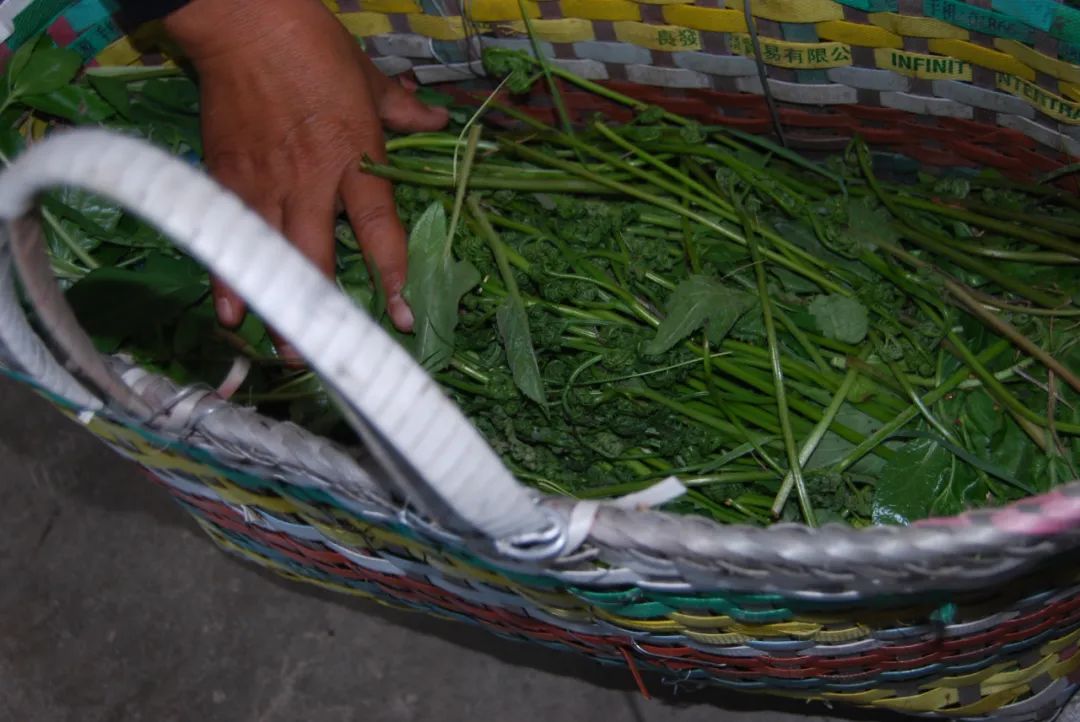
"Do you produce your own deer products?" After watching the wild vegetables, I asked about deer products again.
Mr. Li opened the freezer and found it filled with deer products. There are deer antler slices, deer whip slices, deer heart blood, deer fetus paste and even fresh deer whip. These are all homemade by Mr. Li and his family. They use the packaging of a deer farm and look on par with products from large professional manufacturers. .
After seeing these dazzling and mouth-watering deer products, I asked about the fungus: "Do you collect mountain fungus?"
Mr. Li said: "Agaric can only be collected in places like the Daxingan Mountains. Not only is the quantity small, but the price is very high. Many so-called agaric on the market are just small black fungus picked out from artificial agaric. To be honest, it can It’s good to buy fungus segments.”
Fungus segment? I remember hearing someone say this term on the train, but I still haven’t figured out what it is.
Before I could ask further questions, Mrs. Li had already taken out a bag of fungus from the back room and soaked it for us to see. Apparently, they don’t have many at home.
Sure enough, Mr. Li said: "These fungus are prepared as souvenirs for my son in the city. Every time he comes back, he will definitely bring some fungus to his colleagues."
Mr. Li didn’t say what kind of fungus it was. I was about to ask, but I was attracted by the other two packages that Mrs. Li opened.
Mrs. Li opened the first bag, which was estimated to be half a catty: "These are mountain mushrooms."

"Wild?" It's not that I don't believe it, but I want to verify what she said.
"Yes, I picked it from the mountain and dried it."
Sure enough, there were various mushrooms in the bag, with different shapes and colors.
Mrs. Li opened another bag, which also contained mushrooms, but the shape and color were the same: "This is hazelnut grinding."

"Is this the legendary mushroom 'Hazel Grind'?" I opened my eyes wide. When I heard this term on the train, I asked: "Which word for hazel is hazel mill?"
The 66-year-old man in Tahe replied seriously: "It's the precious treasure." I almost laughed, not because I knew how to write that word, but because I knew that the old man was illiterate. An illiterate old man actually answered seriously in front of others. He did not intentionally mislead, but he believed that it should be what he meant. His enthusiasm is commendable.
Mr. Li and his wife saw that I was interested in these two things, so they wanted to give them to me: "I have come all the way and there is nothing precious, so I will give you these two bags of mushrooms."
This is really good stuff! Money may not be able to buy it.
If you want to know what happened next, please read Chapter 18 of : After watching the roe deer looking for fungus, talking about clothes and drinking milk tea
